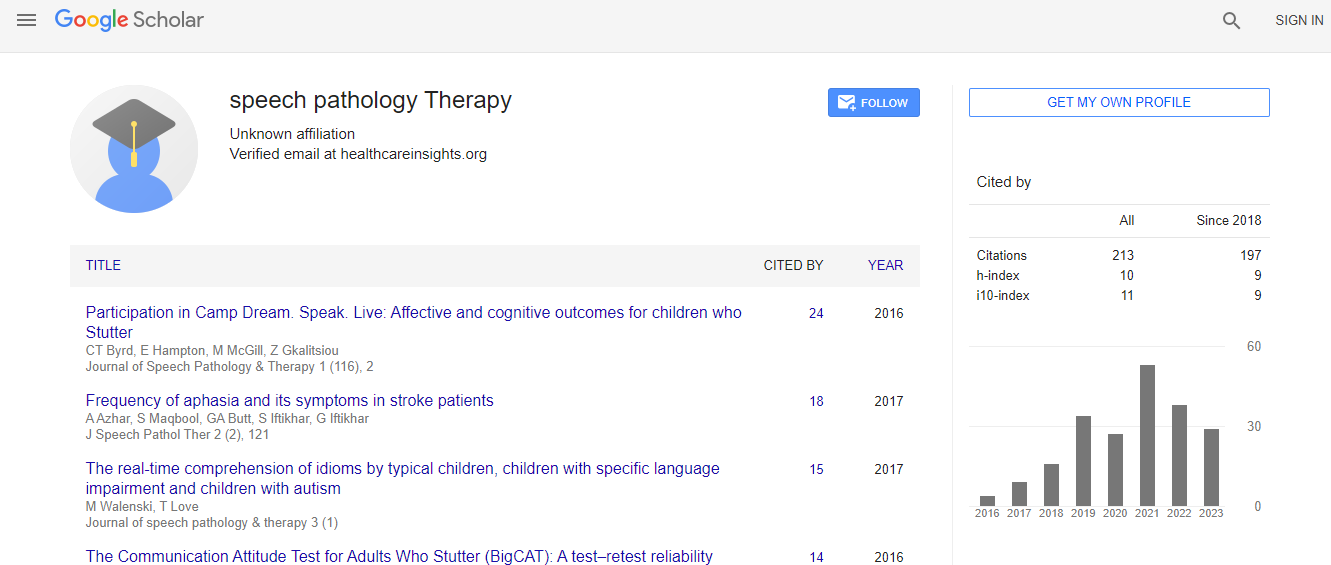Research Article
Do Events on One Day Influence the Perception of Stuttering on Subsequent Days?
Susanne Cook*, Chris Donlan, I. Chris McManus and Peter HowellDivision of Psychology and Language Science, University College London, Gower Street, London, United Kingdom
- *Corresponding Author:
- Susanne Cook
Division of Psychology and Language Science
University College London
Gower Street, London, United Kingdom
Tel: +442076797566
Email: susanne.cook@me.com
Received date: April 11, 2016; Accepted date: May 26, 2016; Published date: June 02, 2016
Citation: Cook S, Donlan C, McManus IC, Howell P (2016) Do Events on One Day Influence the Perception of Stuttering on Subsequent Days? An Examination over a Period of Intensive Treatment. J Speech Pathol Ther 1:113. doi: 10.4172/2472-5005.1000113
Copyright: © 2016 Cook S, et al. This is an open-access article distributed under the terms of the Creative Commons Attribution License, which permits unrestricted use, distribution, and reproduction in any medium, provided the original author and source are credited.
Abstract
Objective: The reaction of children and adolescents who stutter to their own speech and their perception about how others reacted to them were examined over time. Day-to-day changes in perception of own-speech and emotional impact of others on their stuttering were assessed using the new Daily Questionnaire.
Design: Nineteen participants (mean age13.10 years, SD=2.8 years) who attended an intensive stuttering treatment completed the Daily Questionnaire on 19 successive days.
Results: The Daily Questionnaire assessed day-to-day experiences of the participants and the influence these experiences had on the participant’s life. Significant cross-lagged panel correlations between the impact of other people’s behavior on the previous day with perception of general speaking abilities on the current day were found and between the emotions reported on the previous day and the perception of their own speaking abilities on the current day.
Conclusions: The experiences of children and adolescents who stutter fluctuated over time because of the perception of their own and other people’s behavior. These perceived experiences affected how the participants perceived their speech on subsequent days.
